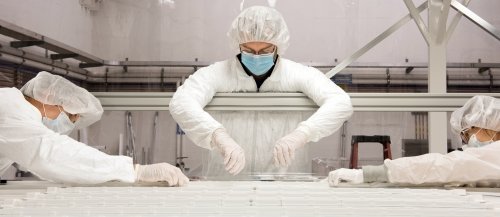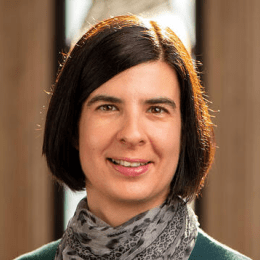Division of Science

Driven by curiosity
The FAS Science division spans the biological and physical sciences. FAS scientists engage in observation of our world and the universe beyond it, laboratory-based experimentation, computational analysis, and the pursuit of questions driven by curiosity about how the world works. Their expertise covers the microscopic and the gargantuan: from the smallest cells, atoms, and particles of matter, to the physical and biological systems that shape life on earth, to the stars and planets.
The divisional dean of Science is Larry Gladney.

Science departments and programs
The FAS is home to three departments in the biological sciences--Ecology and Evolutionary Biology; Molecular Biophysics and Biochemistry; and Molecular, Cellular, and Developmental Biology--and five in the physical sciences--Astronomy, Chemistry, Earth and Planetary Sciences, Mathematics, and Physics.
Biological Sciences
Ecology and Evolutionary Biology
The Department of Ecology and Evolutionary Biology is home to research in population, community, ecosystem, and macroecology; in evolutionary genetics, developmental evolution, behavioral evolution, and evolutionary medicine; and in phylogenetics, systematics, and biodiversity.

Molecular Biophysics and Biochemistry
The principal objective of the Department of Molecular Biophysics and Biochemistry is to understand living systems at the molecular level.

Molecular, Cellular, and Developmental Biology
Research in the Department of Molecular, Cellular, and Developmental Biology spans biology from the organismal to the molecular levels, combining genetic, biochemical, molecular, cell biological and computational approaches to investigate fundamental biological processes.

Physical Sciences
Astronomy
The Department of Astronomy explores the fields of cosmology, exoplanets, extragalactic astronomy, galactic astronomy, high energy astrophysics, solar and stellar astrophysics, and star formation and interstellar medium.

Chemistry
The Chemistry Department is home to research in biophysical chemistry, chemical biology, inorganic chemistry, materials chemistry, organic chemistry, physical chemistry, and theoretical chemistry.

Earth and Planetary Sciences
The Department of Earth and Planetary Science combines chemistry, physics, biology, mathematics, and geology to study the Earth’s interior, atmosphere, oceans, environment, causes of global climate change, and the history of life and climate on our planet.

Mathematics
The Department of Mathematics is dedicated to research across the disciplines of mathematics, including real and complex analysis, linear algebra, geometry and topology, calculus, mathematical physics, and more. The department spans many fundamental areas, and is characterized by deep theoretical inquiry as well as collaborations across disciplines.

Physics
The Physics Department is a center of research seeking to answer fundamental scientific questions in the fields of atomic physics and quantum optics, nuclear physics, particle physics, astrophysics and cosmology, condensed matter, biological physics, quantum information physics, and applied physics.

News

The cosmochemist studying the 'seeds' of the solar system
FAS faculty member Damanveer Grewal conducts high-pressure experiments and analyzes meteorites to figure out how planets form—and where they obtain the ingredients that support life.
‘The beacons were lit!’ A system to detect and map merging black holes
Using gravitational wave measurements, an international collaboration of astrophysicists that includes a research team led by Chiara Mingarelli, Assistant Professor of Physics, has identified two black hole binary candidates — named, in part, after locales in “The Lord of the Rings.”
Yale-developed MOSAIC platform uses artificial intelligence to create experimental chemistry procedures
According to Yale's Victor Batista, the John Gamble Kirkwood Professor of Chemistry, “Chemistry has accumulated millions of reaction protocols, but making practical use of that knowledge remains a bottleneck. MOSAIC is designed to transform that information overload into actionable laboratory procedures.”
Astrophysicist Priyamvada Natarajan discusses recent scientific breakthroughs, AI acceptance, and research ecosystems
Natarajan, Joseph S. and Sophia S. Fruton Professor of Astronomy and Professor of Physics, was recently interviewed by Amitabh Sinha of the Indian Express.
Expanding understanding
Curiosity-driven research expands our understanding of the world and underpins virtually all applied research, innovation, and technological development. When researchers in Yale’s Faculty of Arts and Sciences follow their curiosity, it takes them down unexplored pathways, for the benefit of future generations.



